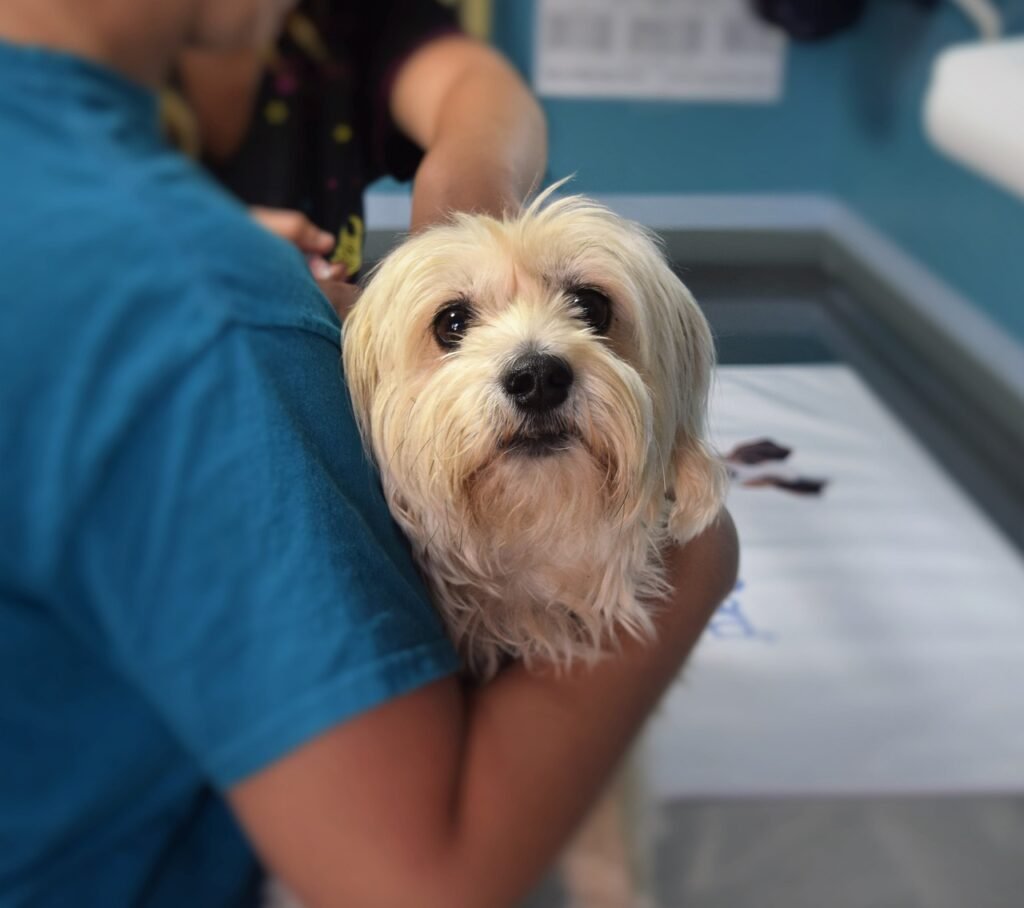Common Puppy Health Problems, Symptoms, and Important Vaccinations
Puppies, like human babies, are susceptible to a variety of health issues. Here are some common health problems, their symptoms, and the necessary vaccinations.

1. Parvovirus
Parvovirus is a highly contagious viral disease that can be fatal for puppies. Symptoms include lethargy, severe diarrhea, fever, and vomiting. Vaccination is the best prevention and usually starts at 6-8 weeks of age, with boosters every 3-4 weeks until the puppy is 16 weeks old.
2. Distemper
Distemper is a serious viral illness with symptoms such as fever, coughing, diarrhea, vomiting, and in severe cases, seizures. Puppies should receive their first vaccination at 6-8 weeks, followed by boosters every 3-4 weeks until they are 16 weeks old.
3. Kennel Cough
Kennel cough is a respiratory infection that causes a persistent cough. It’s highly contagious but rarely serious. Vaccination can be given as early as 6-8 weeks, with a booster every year.
4. Fleas and Ticks
Fleas and ticks can cause a variety of problems, including skin irritation, allergic reactions, and transmission of other parasites or diseases. Regular use of flea and tick prevention medication is recommended.
5. Worms
Puppies can be born with worms or get them from their mother’s milk. Symptoms include diarrhea, weight loss, and a potbelly. Regular deworming is recommended, starting from 2 weeks of age.
5. Worms
…
6. Hip Dysplasia
Hip dysplasia is a genetic condition where the hip joint doesn’t form properly, leading to arthritis or lameness. Symptoms may not appear until adulthood. Regular vet check-ups can help detect this condition early.
7. Ear Infections
Ear infections are common in puppies, especially those with floppy ears. Symptoms include scratching the ear, head shaking, and a bad smell from the ear. Regular ear checks and cleaning can help prevent infections.
Obesity
Obesity can lead to a host of health problems, including diabetes and joint problems. Regular exercise and a balanced diet are crucial for preventing obesity.
Spaying and Neutering
Spaying and neutering are surgical procedures performed by veterinarians that prevent pets from reproducing. In females, the procedure is known as ‘spaying’ and involves removing the ovaries and uterus. In males, ‘neutering’ involves removing the testicles.
- Health Benefits: Spaying helps prevent uterine infections and breast tumors in females, which are malignant or cancerous in about 50 percent of dogs and 90 percent of cats. Neutering your male pet prevents testicular cancer and some prostate problems.
- Behavioral Benefits: Neutered males are less likely to roam away from home, mark their territory, or become aggressive. Spayed females won’t go into heat, avoiding the associated behaviors such as yowling and frequent urination in cats.
- Population Control: Millions of pets are euthanized each year due to a lack of homes. Spaying and neutering can help control the pet population.
When to Spay or Neuter Your Pet
The best time to spay or neuter your pet depends on their breed, size, and sex. Traditionally, the procedure is performed at around six to nine months of age. However, puppies and kittens as young as eight weeks old can be spayed or neutered safely. It’s advisable to consult with your vet to determine the best time for your pet.
Remember, spaying and neutering are significant surgeries that require proper post-operative care. Always follow your vet’s instructions for care after the procedure.
Please note that this information is intended to be a general guide. Always consult with a professional veterinarian for advice specific to your puppy’s breed, age, and health status.
What’s next?
Remember, regular vet check-ups are essential for early detection and prevention of these common health problems. Your vet can provide you with a vaccination schedule and other preventive care measures tailored to your puppy’s needs.
Please note that this article is intended to be a general guide. Always consult with a professional veterinarian for advice specific to your puppy’s breed, age, and health status.

